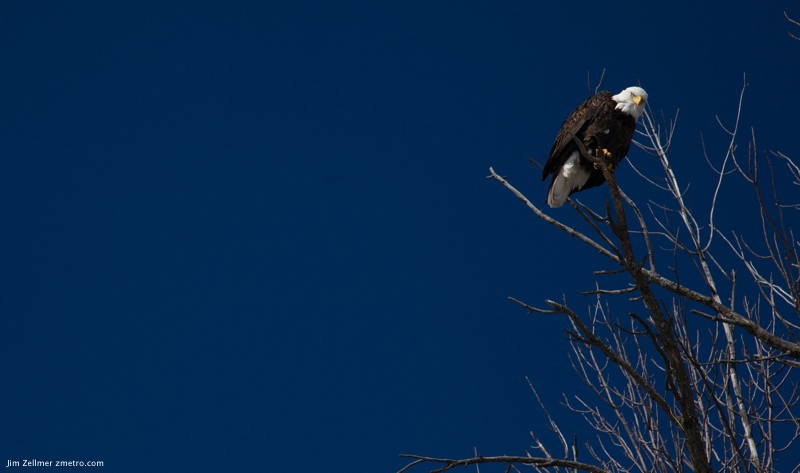Both Matt and myself have been covering the tragic events surrounding the Tsunami in Japan. I have left Japan now but Matt is still there and headed back into the disaster zone to do more reports. I’m sure both of us will talk more about what it was like later on, but for now the story is the priority.
Frites
How we lost our voice
Like everyone, I have been gripped and stirred by the events unfolding in the Maghreb and Middle East. Unlike some admirable and astute commentators, I didn’t feel primarily moved to try to “make sense” of what was happening in Tahrir Square, or to speculate on what the millions of Egyptians not in the square were thinking. Such speculation seemed and still seems to me beside the point and actually rather odd. I didn’t hear a comparable call at the time of the demise of Salazar and Franco and the Greek colonels, or the fall of communism and the dismantling of the Berlin Wall, to try to “make sense” of those events, or to wonder what all those not celebrating and tearing down chunks of concrete were up to.
People, not everyone to be sure, but an overwhelming mass including the bravest and best and most articulate spirits, no longer wanted to live in police states or kleptocracies. They no longer wanted to be tortured or murdered by goons or spied on by spooks and kept under surveillance by their neighbours. They wanted free and transparent elections. They wanted the greater measure of control over their lives that they imagined to be a function of democratic government. No doubt they also wanted a better chance of prosperity. None of this, as we watched it unfolding in Tunisia and Egypt and Libya and other places, seemed to me to need to be teased out by some subtle process of reasoning. The primary sense of it was overwhelmingly clear.
The “Foundation That Southern Nevada is Built On”

Bond king’s Lear-like Treasuries renunciation
At the end of June, the Federal Reserve will no longer be the biggest buyer of US Treasuries. But one notable investor has already said Hasta la vista.
Pimco’s flagship $237bn total return fund, managed by Bill Gross, whose status as bond king has been synonymous with the 25-year bull market in Treasury debt, pulled the plug on holding US government related securities in February, it emerged this week. Last month his fund eschewed holding US government related debt, having had 12 per cent of the fund’s portfolio in Treasuries in January.
Given the record of Mr Gross, one cannot ignore the decision. Since the total return fund began in 1987, it has generated an average annual return of 8.42 per cent versus the 7.27 per cent gain in its benchmark, the Barclays Capital US Aggregate index.
The move is a bold one. Given that the Barclays Aggregate has a Treasury weighting of 40 per cent, the decision by Mr Gross to exclude government holdings means he is seriously underweight his benchmark, or “bogey”.
Modern muckraking does free speech a disservice
James O’Keefe is either the sleaziest kind of journalist or the most respectable kind of con artist. His Project Veritas group uses lies, scams and hidden cameras to entrap his political adversaries. This week, Project Veritas released a video of its latest victim: Ron Schiller, a fundraising executive for National Public Radio. Mr Schiller and a colleague were lured to a Washington restaurant with promises of $5m in donations from the “Muslim Education Action Center”. Meac, supposedly set up by the Muslim Brotherhood to “spread the acceptance of sharia”, does not actually exist. It was an invention of Project Veritas. But Mr Schiller was voluble in assuring its leaders of his contempt for the kind of middle-class Americans who voted for the Tea Party last autumn. “They believe in white, middle America, gun-toting … it’s scary,” he said. “They’re seriously racist, racist people.” Of course, they also happen to elect the congressional majority that controls the fate of $450m in public broadcasting funding. Mr Schiller has resigned from NPR, as has its chief executive, Vivian Schiller (no relation).
Political pranksterism is all the rage. Sacha Baron Cohen practised a form of it in Borat and, more recently, the editor of the Buffalo Beast news website phoned Scott Walker, the embattled Wisconsin governor, passing himself off as the Republican donor David Koch.
A sugared pill
When Daniel Carlat, a psychiatrist in Massachusetts, was flown to New York with his wife by Wyeth, the “training” weekend he attended in a luxury hotel was topped off with a Broadway show. It was early 2001 and he had just agreed to the US pharmaceuticals company’s proposal that he give talks to doctors about its antidepressant Effexor.
During the following year, he was regularly paid fees of $750 a time to drive to “lunch and learn” sessions where he would speak for 10 minutes to emphasise the drug’s advantages to fellow doctors, using slides prepared by the company. “It seemed like a win-win,” he recalls. “I was prescribing it, educating doctors and making some money.”
But within a few months, he became disillusioned with his co-option as a marketing representative. He was selectively presenting clinical data that put the drug in a positive light to physicians who had been targeted by the company through “data mining” techniques that identified their individual prescription patterns.
Oil & Water, Jet Fuel & Labor
On June 25, 2008 I blogged asking the question: Is Oil A Cancer Or A Cure? At that time, the price of a barrel of oil had not yet reached its apex of $147 per barrel, but was well on its way. Based on findings by the Air Transport Association’s superb economic analysis team led by chief economist John Heimlich, the U.S. airline industry paid the equivalent of $174.64 per barrel [price of a barrel of oil plus the equivalent cost to refine crude into jet fuel (the crack spread)] on July 11, 2008. By December 23, 2008 the price of a barrel of West Texas Intermediate had fallen to $30.28 per barrel. So far in 2011, we’ve seen a similar surge in oil prices, but based on current geopolitical events, I am not expecting another $117 drop in the price of a barrel of oil like we witnessed in 2008.
I’m actually wondering what happens if the wave of Mideast political upheaval washes over Algeria? Or Saudi Arabia? Some economic experts say the price of oil could rocket past the $200 threshold.
In 2011, the industry has paid an average of $89.15 per barrel of crude and another $25.80 in the crack spread for a total cost of “in the wing” jet fuel of nearly $115 per barrel. Since February 22, 2011 the industry has paid more than the equivalent of $120 per barrel for jet fuel. On March 1, 2011 the industry paid the equivalent of $132.17 per barrel for jet fuel including the crack spread of $32.54. For all of 2008, the industry paid the equivalent of $25 per barrel to refine crude into jet fuel. In the last five days of trading the crack spread paid by the industry is nearly $30 per barrel.
Dollar’s haven status hangs in the balance
Long seen as a place of safety in times of turmoil, the dollar may be losing its haven appeal.
Soaring oil prices, driven by upheaval in the Middle East, falling equities and elevated volatility have all made investors uneasy. A flight to the dollar usually accompanies increased risk aversion.
This time, though, while the traditional havens of the Swiss franc and the yen have benefited, the US currency has suffered.
“It seems the dollar’s haven status has vanished,” says Steve Barrow at Standard Bank. “And, even for long-term dollar bears like ourselves, this is a worry.”
The main reason for the dollar’s underperformance, say analysts, is concern about the effect of rising oil prices.
The dollar has dropped to a record low against the Swiss franc and fallen 2 per cent to Y81.82 against the yen in the past two weeks, just shy of the all-time low of Y79.7 it hit against the Japanese currency in 1995. It has also lost ground against the euro and sterling.
The fear is that higher oil prices will lead to a transfer of funds from oil-importing countries to the sovereign wealth funds of oil-exporting nations.
A Madison Eagle

